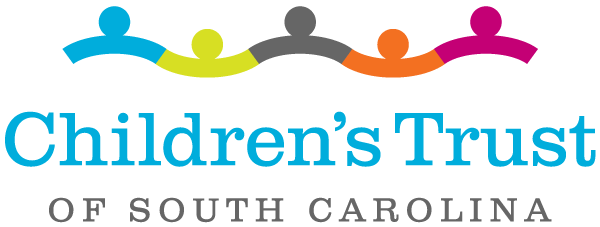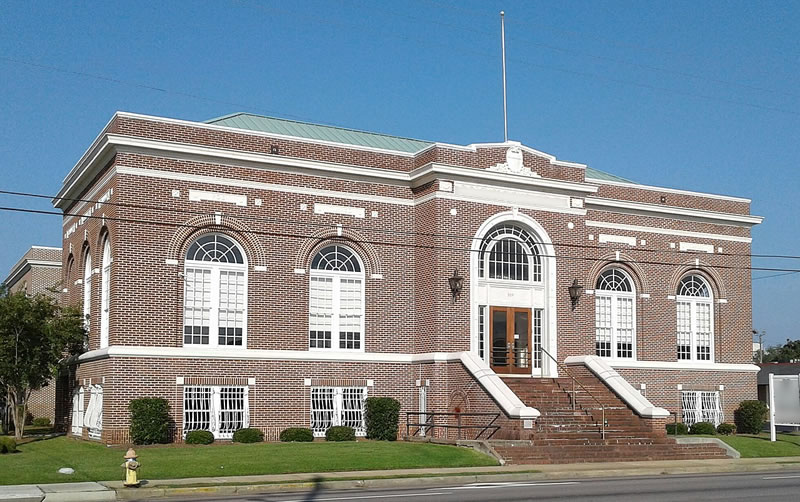NEWS: Unexpected moves on abortion, tax conformity startle many
NEWS BRIEF: Seniors advocate bemoans lack of leadership for aging in S.C.
CALENDAR: Never say die with sine die looming
COMMENTARY, Brack: Engaging in community discussions may help us move forward
SPOTLIGHT: Children’s Trust of South Carolina
MY TURN, Templeton: “They called me the ‘Buzzsaw’”
FEEDBACK: Send us your thoughts
MYSTERY PHOTO: Where is this brick building?
S.C. ENCYCLOPEDIA: Mules
NEWS
NEWS: Unexpected moves on abortion, tax conformity startle many

By Lindsay Street, Statehouse correspondent | The penultimate week of session may have been mistaken for an episode of “Trading Spaces.”
Bucking decades of party tradition, a Democrat found himself proposing an amendment in the Senate that would effectively ban abortions in the state. Likewise, Republican leadership found themselves pushing for a tax conformity bill that makes the income tax code more progressive by reinstating a tax exemption.
Abortion debate turns
Sick of the abortion debate sucking all the air out of the Senate while other bills languish, S.C. Sen. Brad Hutto, D-Orangeburg, proposed an amendment to outlaw virtually all abortions Wednesday. The same reason was given for Republicans breaking ranks to defeat the bill: getting on with their jobs.

Hutto, a longtime pro-choice champion, defended his move Thursday.
“Every year in multiple forums, some form of abortion debate comes to the Senate and ties us up in knots,” Hutto said. “This will remove the incentive to argue this over and over and over again because (if passed it would be) in the courts for the next three years.”
He earned quick support from many Republicans, but not from an abortion-ban touting senator from Anderson, who said it doesn’t go far enough. Recently-elected Sen. Richard Cash said he would vote against the bill because it offered exceptions for rape, incest and life of the mother. He said it was providence that the bill was being considered for third reading, however.
“I do believe this is one of those times that it is true the Lord works in mysterious ways,” Cash said on the floor.
Hutto said his proposed amendment — which he emphasized he did not support — is blatantly unconstitutional He said he hoped that it would ignite passion from abortion-rights advocates.
“I’m convinced the courts are going to protect women,” he said, adding that a big ban is better than slowly “chipping away” at abortion access.
Abortion-rights advocates, however, immediately called the move risky and denounced it. Democratic senators launched a filibuster Thursday, which bled into the early morning hours Friday before the Senate voted 24-21 to send the bill back to committee, where it is expected to remain quiet for the rest of session.
During the debate, Sen. Sandy Senn, R-Charleston, also lamented abortion politics taking away from more pressing issues, such as the $9 billion nuclear fiasco and the budget. Key Republicans who voted to put the issue back in committee included Chip Campsen of Mount Pleasant, Katrina Shealy of Lexington, Hugh Leatherman of Florence, Greg Gregory of Lancaster and Luke Rankin of Conway.
According to a Post and Courier story, Rankin said he broke so the Senate could get on with other bills. The Senate resumes session 11 a.m. May 8.
Progressive tax consequence?
Meanwhile, S.C. House Speaker Jay Lucas filed a bill this week that will conform the S.C. tax code to the federal code, a move made every year as the federal government’s code adjusts. But this year’s conformity would cause a rise in taxes in the state after the federal government’s overhaul in late 2017.

In March, a House study committee issued a report that said conformity without raising taxes could be achieved by overhauling the state’s tax code. The proposal would be flatter and remove many exemptions.
But while a flatter tax code has been a Republican mantra since at least the 1980s, that was not part of Lucas’ plan. To avoid increasing taxes on South Carolinians, Lucas’ plan would restore the personal exemption in the state, which the federal overhaul did away with.
Lucas’ spokesman Caroline Delleney did not respond to multiple requests for comment for this story. During House discussion Thursday, S.C. Rep. Gary Simrill, R-York, spoke in favor of the bill, H. 5341.
“What this bill does is protect the taxpayers of South Carolina so there is no increase on them,” Simrill said.
Some see the bill as quiet agreement that the state is barely meeting its service obligations under the current tax code and flattening it may not prove beneficial.
“I’m sure they (Republican leadership) would be shocked to realize that and would certainly disagree that it is a progressive tax reform,” Democratic S.C. Rep. Gilda Cobb Hunter of Orangeburg said Friday. She praised the bill for maintaining the personal exemption “that will mitigate some of the damage by the GOP tax scam in eliminating deductions.”
The bill received unanimous consent for second reading and is on the House’s calendar for third reading next week.
In other news this week:
Exceptional SC. A bill that codifies a voucher program for special education received unanimous second reading in the Senate. It is poised for third reading for next week. The bill has already passed the House and could be on the Governor’s desk before end of session.
Vision tests to return. A bill reinstating vision tests for drivers in 2020 will go to Gov. Henry McMaster’s desk now that it has passed both bodies.
Anti-Semitism on campus. A bill aimed at helping college campuses battle discrimination and anti-Semitism has passed both chambers. A McMaster spokesman said the governor would sign the bill.
Solar gets boost in budget. The House’s budget amendments include a provision that would raise the state’s net metering cap from 2 percent to 4 percent. The amendment needs to pass in conference and make it through gubernatorial vetoes to be enacted.
- Have a comment? Send to: feedback@statehousereport.com
NEWS BRIEF
NEWS BRIEF: Seniors advocate bemoans lack of leadership for aging in S.C.

By Lindsay Street, Statehouse correspondent | Things are unlikely to change any time soon for the Lieutenant Governor’s Office on Aging — and that bothers Meredith Breen of Charleston, a policy advocate for seniors.
A bill restructuring the lieutenant governor’s office is on life support in the session’s final days. It passed the Senate but was referred to the House Judiciary Committee, which held its final meeting Wednesday without voting on a bill that dictates where the office’s duties go once it is absorbed by the governor’s office on Jan. 1.
The bill would give the Office on Aging a seat at the table as a cabinet agency, which could allow it to have a louder voice for funding.
And funding is key, Breen said. South Carolina is second in the nation for senior hunger, according to a five-year report issued by AARP in 2015. A more recent study found that 19.3 percent of adults over the age of 60 in South Carolina faced the threat of hunger in the past 12 months in 2017.
When asked if the bill was definitely dead, S.C. Rep. Peter McCoy, the Charleston Republican who chairs the House Judiciary subcommittee in which the bill sits, said he would have to talk to Judiciary staff. McCoy did not respond to further requests seeking comment.
According to Catherine McNicoll, director of legal and legislative affairs in the lieutenant governor’s office, not much will change if S. 1120 isn’t passed.
“It will be a change of administration,” McNicoll said. “It would operate fairly smoothly regardless.”
She said the agency can expect no changes during this coming fiscal year. The Office on Aging is funded through state funds with a federal match. Once the administration change occurs, it will be the seventh time since 2008 that the office has undergone new leadership.
Breen said this is another misstep for lawmakers when it comes to leadership on senior issues in the state. She said the office is suffering from a “leadership vacuum.”
“Everyone just shrugs their shoulders and says it’s here for now,” she said.
S.C. Sen. Chip Campsen, R-Charleston, who sponsored S. 1120, did not return phone calls seeking comment. Sen. Thomas Alexander, R-Oconee, said the bill will be taken up again in January. Alexander chairs the Joint Legislative Committee on Aging.

“We’ll get there. It may not be as quickly as we hoped … (but) sometimes these things take some time,” Alexander said.
He echoed Breen’s comment that it’s important to have the office become a cabinet agency and bring a louder voice to senior issues in the state.
“That elevates the senior issues to the highest level,” he said.
CALENDAR: Never say die with sine die looming
By Lindsay Street, Statehouse correspondent | The legislative session officially ends next week, jeopardizing scores of bills that have either stalled, languished or simply didn’t have enough oomph to get over the finish line in time.
![]() But a common annual procedural move called sine die (Latin for without day and pronounce sign-ee-dye) could be the saving grace for some bills. If lawmakers return for a “sine die” session, usually a couple of weeks after formal adjournment, they may consider a pre-agreed list of bills from earlier in the session. The items that make the agenda must receive two-thirds majority from both bodies.
But a common annual procedural move called sine die (Latin for without day and pronounce sign-ee-dye) could be the saving grace for some bills. If lawmakers return for a “sine die” session, usually a couple of weeks after formal adjournment, they may consider a pre-agreed list of bills from earlier in the session. The items that make the agenda must receive two-thirds majority from both bodies.
The bills that will be part of a sine die proposal are being discussed now. In conversations this week with lawmakers, here are a few items they believe will be settled after session:
Nuclear. It’s unclear exactly what will get done when it comes to the $9 billion public-private utility project that was canceled before completion last year. The House has passed plenty of bills — most of which deal with rolling back rates on SCE&G customers — while the Senate has only taken up one bill, which the House did not like because it did not roll back 100 percent of the nuclear surcharge on customers. Some suggest further maneuvering would be meddling with Virginia utility Dominion Energy’s plan to buy SCE&G parent SCANA. Lawmakers have said the deal may not be the best for ratepayers.
Tax conformity. House leaders dropped a bill this week to bring the state’s tax code in line with the federal government. It was brought immediately to the floor, but even so it may not have a chance to make three readings in both bodies before the end of session. Gov. Henry McMaster is urging lawmakers to conform this year, making it a key priority.
Budget. The House this week sent over its final amendments to the $8 billion annual budget to the Senate. Not surprisingly, the Senate rejected those amendments. Now the bodies head to conference, where select members of each body hash out the details. It’s possible those details could get worked out before the end of session, but the House is taking no chances. Earlier this week, a House bill was filed to prolong state government spending should the budget remain unpassed after June 30.
Gubernatorial vetoes. This is one of the most popular, perennial sine die items to call for a special session. Once the budget is passed and the governor has set his red pen to it, more will be known on which vetoes the bodies plan to override.
BRACK: Engaging in community discussions may help us move forward

By Andy Brack, editor and publisher | Most people don’t have the time or inclination to attend lots of public meetings where elected officials make decisions that impact their lives. Most people have got better things to do, including not being bored (much of the time) out of their skulls in meeting rooms.
 But every community has faces familiar to elected officials. These are the squeaky wheels, the people who show up and make their cases, time after time. And more often than you’d think, they get the grease in the public policy process because they advocate for their positions. But just because these folks are squeaking doesn’t mean that what they want is what most people want.
But every community has faces familiar to elected officials. These are the squeaky wheels, the people who show up and make their cases, time after time. And more often than you’d think, they get the grease in the public policy process because they advocate for their positions. But just because these folks are squeaking doesn’t mean that what they want is what most people want.
A new foundation in the Lowcountry is working on a way to give voices to the voiceless – to engage more people so they can share what’s good and what’s challenging in their neighborhoods and communities. Think of their project as a community-wide focus group that seeks to find out what’s really on people’s minds.
The Library Foundation of the Lowcountry tested the project, dubbed “Lowcountry On the Table,” to see what would happen if varied small groups of people sat together for an hour or so to just talk about life. Across Charleston, Berkeley and Dorchester counties on Tuesday, more than 60 groups of six to 10 people gathered for a meal or refreshments in homes, libraries, businesses, Rotary clubs and other places to explore what unified them and what was keeping people apart.
What resulted was phenomenal. Strangers shared. Acquaintances became a little closer. Neighbors engaged.
Initial results show virtually all attendees were satisfied with the quality of these unstructured conversations. Three in four committed to taking more action to improve their communities. And seven in eight met someone they didn’t know.
The table discussions, arranged independently by volunteer hosts, engaged diverse groups that looked like the area as a whole. Some 28 percent of participants were African American, 14 percent were Hispanic and 6 percent were teenagers. They were distributed in urban, suburban and rural settings.
Topics ranges from education, traffic and flooding to growth, affordable housing and more. Here are some of the comments from two sessions:
Traffic: “When I hear the conversation about traffic, they never ask why you were in the car. It’s almost the presumptive car culture. Part of the solution could be better retail services and opportunities in their neighborhoods” so people don’t have to drive so much and clog up the roads. In another group, a guest similarly observed, “When you can start taking away the reliance on cars, you can start creating dynamism in neighborhoods … by not relying on cars.”
Education: “We need more autonomy in neighborhood schools … so they are running themselves,” one man said. Another added, “There is a segment of schools not performing to the standards we expect.” Others added that schools needed to focus more on improving diversity, reducing re-segregation, , focusing on skills and improving leadership.
Housing: “We’re running a segment of the population off of the peninsula” because of the lack of affordable housing.
But what was really interesting in these sessions was how positive participants were about their communities.
“The people are friendly,” one elderly man said. “It’s amazing how helpful people can be.”
Another added, “Seeing the way people come together here is a gift. If you go to Anywhere USA, you don’t have people who have a habit of gathering together.” Another person who loved living in Charleston weighed in, “Things are getting done. … Even when it is bad, how bad is it really?”
All communities have challenges and opportunities. What Lowcountry On The Table, which will broaden to hundreds of tables in the fall after this successful pilot, showed was how vital it is for people to connect more and have conversations that can lead to better places to live.
Bottom line: We need to engage in our neighborhoods to talk more about things that we might not be comfortable with and talk with people with whom we might not normally talk. More than likely, we’ll learn a lot – and be surprised at how much we have in common.
- Have a comment? Send to: feedback@statehousereport.com.
SPOTLIGHT
SPOTLIGHT: Children’s Trust of South Carolina
 The public spiritedness of our underwriters allows us to bring Statehouse Report to you at no cost. This week’s spotlighted underwriter is the Children’s Trust of South Carolina, the only statewide organization that works to strengthen families and lead communities to prevent child abuse, neglect and injuries in South Carolina. The organization trains and educates professionals who work directly with families and also funds, supports and monitors proven prevention programs. Children’s Trust is the voice for South Carolina’s children and advocates for strong, well-founded policies that positively impact child well-being. Children’s Trust is home to Prevent Child Abuse South Carolina, KIDS COUNT South Carolina and Safe Kids South Carolina. The Children’s Trust helps to:
The public spiritedness of our underwriters allows us to bring Statehouse Report to you at no cost. This week’s spotlighted underwriter is the Children’s Trust of South Carolina, the only statewide organization that works to strengthen families and lead communities to prevent child abuse, neglect and injuries in South Carolina. The organization trains and educates professionals who work directly with families and also funds, supports and monitors proven prevention programs. Children’s Trust is the voice for South Carolina’s children and advocates for strong, well-founded policies that positively impact child well-being. Children’s Trust is home to Prevent Child Abuse South Carolina, KIDS COUNT South Carolina and Safe Kids South Carolina. The Children’s Trust helps to:
- Research resources: https://scchildren.org/research/
- Advocate: https://scchildren.org/advocate/
- Local partners: https://scchildren.org/local-partners/
TEMPLETON: “They called me the ‘Buzzsaw’”
By Catherine Templeton, special to Statehouse Report | Where I come from, we show up when people need help. I was one of the first people Gov. Nikki Haley asked to help her make it “A Great Day in S.C.” While Gov. Haley was bringing prosperity to South Carolina, I was one of the business people standing behind her backing up what she was selling.

I can’t unsee what I saw in Columbia, but I can undo it. I’m an outsider who has never run for office before, but I stood with Gov. Haley for four years while we fought the Democrats, the liberal media, the entrenched bureaucrats, and the corrupt good ol’ boys. And now I know just enough about how they self-deal and waste our money to be dangerous to the dinosaurs in the swamp.
In fact, the media were so upset with my government reform, they called me the “Buzzsaw.” I fired 100 entrenched bureaucrats, saved $68 million taxpayer dollars, went 3 for 3 against the Obama administration, and fought to bring 7,500 jobs to South Carolina families.
Maybe that was why, when President Trump called me to Trump Tower and considered me for his Secretary of Labor, his team called me a “Triple Threat.” Or maybe it is because I am a mom, a fighter, and I can’t be bought.
We have to pick a new governor next month, or we will suffer a full decade with a politician who has been running for office for 30 years, who we never elected as our governor any of the times he tried. Worse than that, the political consultants he had on his payroll for decades were just indicted on public corruption. South Carolina is one of the most conservative states in the nation and we deserve a governor who acts that way.
Since Gov. Haley left our state to defend our nation, we’ve been at the mercy of Henry McMaster. He has taken almost a billion dollars more from us by signing into law the largest tax increase in modern history (and I’m not talking about the gas tax). He is allowing prisoners to riot, kill, jump the fence, and put us in danger. And he stood by without a whimper when the aggressive Teamsters Union took over a vital port resource, allowing them to shut down South Carolina for business and hurt our jobs at their whim.
We can’t get home because of the traffic, our education system is dead last in the nation, and our law enforcement officers are not given the respect and support they deserve.
When I grew up in South Carolina, people could afford a john boat and a week at the beach. Now, South Carolinians can’t afford groceries – or the light bill.
The corrupt good ol’ boys in Columbia are costing us money, time, and our lives. I won’t back down until we stop them. They watched while I took a buzzsaw to government with Nikki Haley’s support and they will do all they can to make sure I don’t go back to Columbia with a bigger blade.
Put on your safety gear. I want you to show up on June 12 with me and together, let’s Make It a Great Day in S.C. — again.
Attorney Catherine Templeton of Mount Pleasant is a former head of the state Department of Health and Environmental Control and Department of Labor, Licensing and Regulation. More: http://www.catherinetempleton.com.
EDITOR’S NOTE: Through June 12, Statehouse Report is running opinion pieces by gubernatorial candidates with primary challengers. Five Republicans and three Democratic candidates for governor have been invited to submit messages they want to share with voters.
Recent candidate contributors
- GOP, McGill: South Carolina is worth fighting for (April 19)
- Have a comment? Send it to: feedback@statehousereport.com.
FEEDBACK
Send us your thoughts
We love hearing from our readers and encourage you to share your opinions. But you’ve got to provide us with contact information so we can verify your letters. Letters to the editor are published weekly. We reserve the right to edit for length and clarity. Comments are limited to 250 words or less. Please include your name and contact information.
- Send your letters or comments to:feedback@statehousereport.com
MYSTERY PHOTO
MYSTERY PHOTO: Where is this brick structure?
We’re betting lots of our readers in a certain part of South Carolina will know where and what this building is. Send your best guess – plus your name and hometown – to feedback@statehousereport.com. In the subject line, write: “Mystery Photo guess.”
Our previous Mystery Photo
In the April 27 issue, we showcased the top of a building and asked where it is. Answer: Wentworth Mansion in Charleston, a top-quality, luxury hotel on, well, Wentworth street.
 Hats off to four readers who figured out the mystery: George Graf of Palmyra, Va.; Dale Rhodes of Richmond, Va.; Faith A. Line of Anderson; and Gloria B. Jenkins.
Hats off to four readers who figured out the mystery: George Graf of Palmyra, Va.; Dale Rhodes of Richmond, Va.; Faith A. Line of Anderson; and Gloria B. Jenkins.
Graf said he had to do some digging to find the building, which “was ranked in 2018 as the #2 Luxury Hotel in the United States by TripAdvisor Traveler’s Choice Award and was on the Conde Nast Gold List for 2018.
“According to charleston.com, built at a time when money was scarce in the south, Francis Silas Rodgers gave Charleston one of its grandest homes.
“Rodgers was born in Charleston in 1842 and went into the cotton factoring business with his father. A factor was simply a broker or middleman; most cotton planters used cotton factors located in major ports like Charleston to sell their exports. Even after the Civil War, sea island cotton was a viable export in the South until the early part of the twentieth century when the boll weevil came along.
“Rodgers was able to weather most of the economic problems facing the South after the Civil War. Though Charleston and the surrounding area was economically devastated, some Lowcountry land owners, such as the Draytons, fortunately were able to find phosphate on their property. Rodgers invested in phosphate and owned a large interest in the Atlantic Phosphate Company. He also invested in other business enterprises and built his wealth over a period of years.
“Rodgers was active in local politics, serving on the City Council for two terms. For a city that endured five great fires between 1740 and 1861, one of Rodgers’ most important contributions was the organization of Charleston’s first paid professional fire department. Rodgers spent many hours using the cupola at 149 Wentworth as a watchtower for fires.”
Send us a mystery: If you have a photo that you believe will stump readers, send it along (but make sure to tell us what it is because it may stump us too!) Send to: feedback@statehousereport.com and mark it as a photo submission. Thanks.
S.C. ENCYCLOPEDIA
HISTORY: Mules

S.C. Encyclopedia | A mule is a hybrid animal that results from breeding a male donkey with a female horse. Although mules have gender (males are called “horse mules” and females “mare mules”), they are sterile and cannot reproduce. For centuries mules have been prized for their intelligence and capacity for work. Farmers typically preferred mules to horses because mules usually lived longer, learned faster, and were better tempered than horses.
Mules were fixtures of rural life in South Carolina for two hundred years. Cotton and tobacco growers alike used mules, and the hearty animals plowed, harrowed, and hauled crops to market in every county in the state. The timber, naval stores, and phosphate industries employed mules as well. Among rural folk, ownership of mules placed landless farmers in a position to negotiate more favorable tenancy arrangements with landlords. An active market in mules existed throughout the year, and any serviceable mule was worth hard cash. Thus, mules were commonly pledged as collateral against loans and advances from banks and merchants.
South Carolina’s mule population peaked in the 1920s at around 210,000. As nearly all were imported from Missouri or Texas, the mule trade drained millions of dollars annually from South Carolina farmers. The state’s commissioner of agriculture prudently encouraged farmers to raise their own mules, but few heeded his advice.
By the 1940s tractors and trucks were replacing mules on South Carolina farms. The pace of change quickened after World War II, and by the early 1950s mules were the exception rather than the rule. Here and there a beloved animal lived out his days in semi-retirement tilling a vegetable garden as plowmen relied more and more on diesel power.
— Excerpted from an entry by Becky Walton. To read more about this or 2,000 other entries about South Carolina, check out The South Carolina Encyclopedia, published in 2006 by USC Press. (Information used by permission.)
ABOUT STATEHOUSE REPORT
Statehouse Report, founded in 2001 as a weekly legislative forecast that informs readers about what is going to happen in South Carolina politics and policy, is provided to you at no charge every Friday.
- Editor and publisher: Andy Brack, 843.670.3996
- Statehouse correspondent: Lindsay Street
More
- Mailing address: Send inquiries by mail to: P.O. Box 22261, Charleston, SC 29407
- Subscriptions are free: Click to subscribe.
- We hope you’ll keep receiving the great news and information from Statehouse Report, but if you need to unsubscribe, go to the bottom of the weekly email issue and follow the instructions.
© 2018, Statehouse Report. All rights reserved.
















 We Can Do Better, South Carolina!
We Can Do Better, South Carolina!